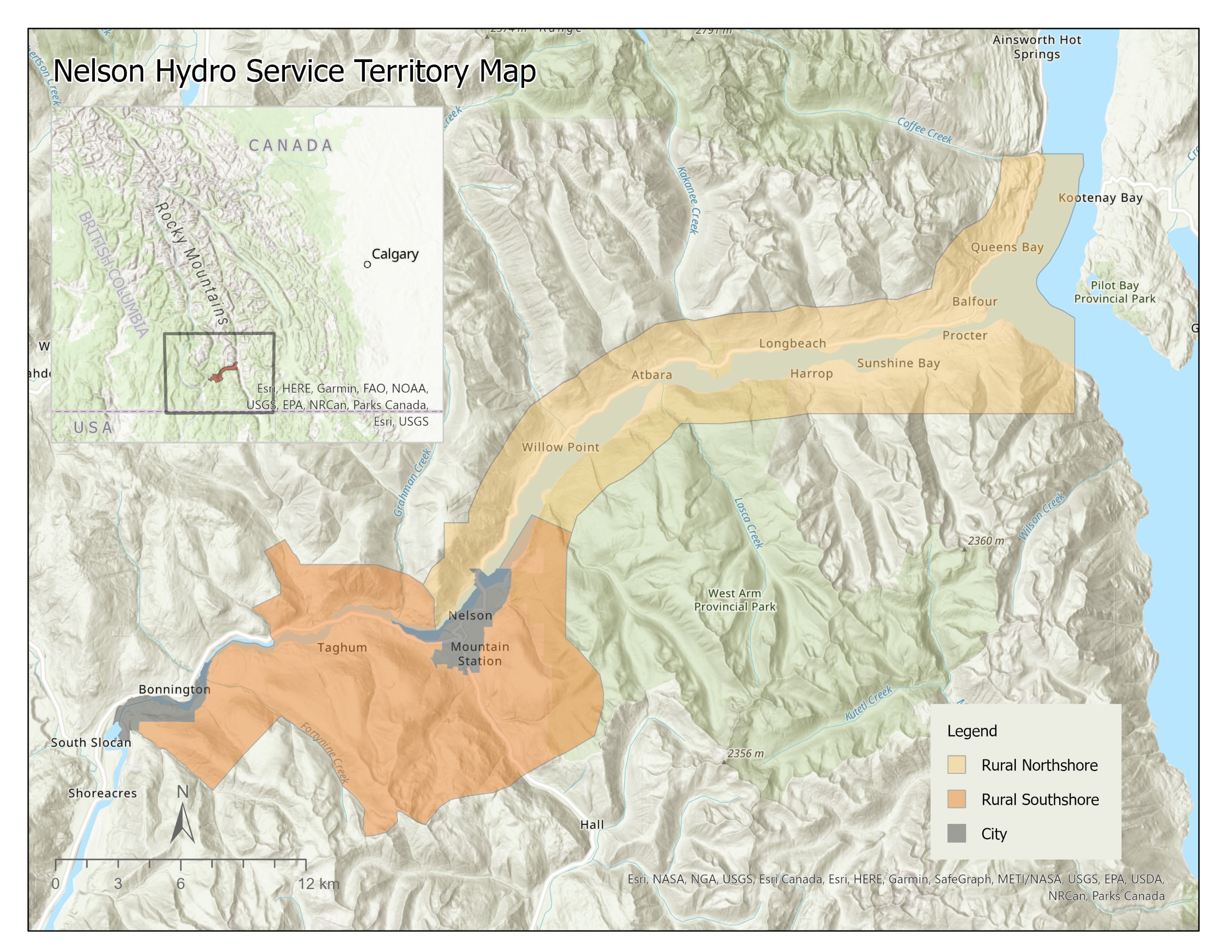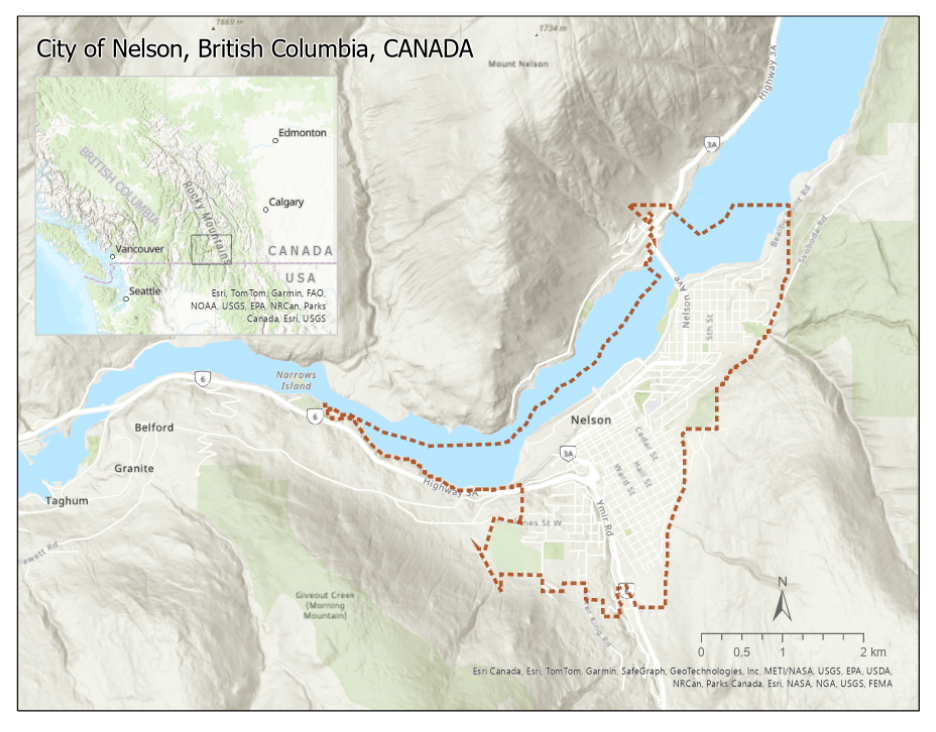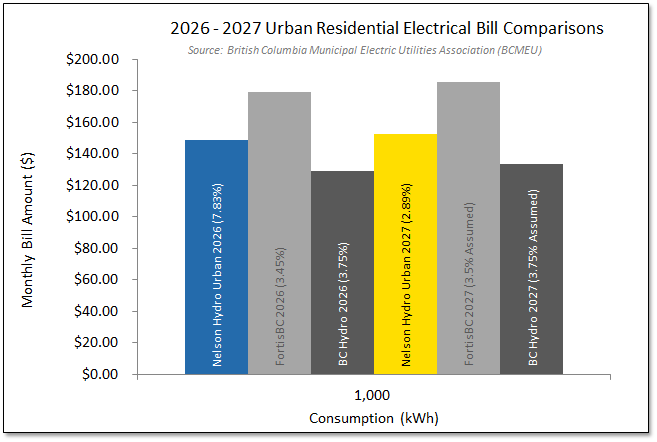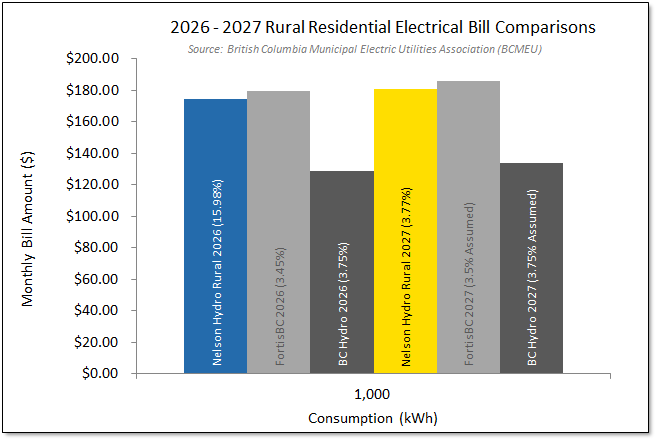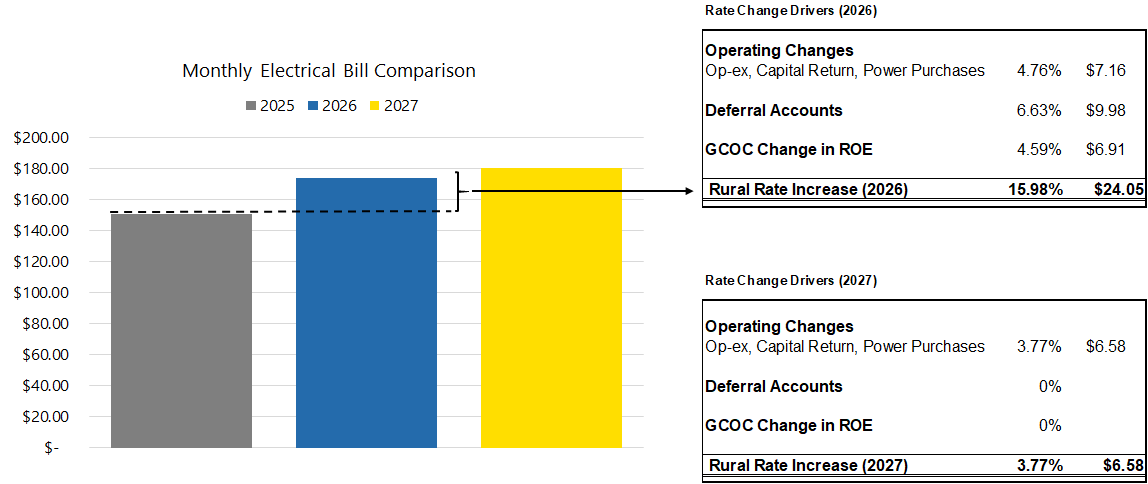Revenues
Are received from customer payments of electricity bills, leasing of space on a power pole for other utilities like Telus and Shaw, manual meter reads for those customers that do not want their meter read by automatic radio transmission, and other services fees as noted in Appendix D and E of the Nelson Hydro Service Bylaw 3608, 2025.

